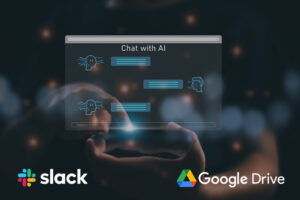AI has taken technology to newer heights and played a fundamental role in transforming the digital age. However, in the quest to make the technology even stronger, scientists are developing AI that will be better than human minds, which begs the question—will AI surpass human intelligence?
Generative AI “generates” content, such as texts, images, audio, and videos, using machine learning by studying user-given prompts. ChatGPT, Google Bard, and DALL-E are all examples of generative AI tools. Despite generative AI’s positive and ground-breaking features, users and scientists are raising concerns regarding the negative impact of its activities, claiming it poses a threat to human agency and autonomy.
During a VivaTech conference in Paris, an annual European technology and start-up fair, attendees and tech enthusiasts used various generative AI applications. One tool allowed them to converse with the renowned Dutch painter Vincent van Gogh about his paintings—a surreal conversation, considering he passed away 133 years ago.
Christophe Renaudineau, the CEO of Jumbo Mana, the French start-up that launched the Van Gogh Project, explained how talking to the painter over a century after his death was possible. According to him, Jumbo Mana used the museum’s database, studied 1,000 letters from Van Gogh, and worked with Wouter van der Veen, a world expert on Van Gogh, to collect “correct sources and data.”
According to Carolina Bessaga, a speaker at VivaTech and an Innovation Lead at Global Network, the data used to feed the machine is critical. However, providing machines with data and information can lead to issues of bias.
Joana Bryson, a computer scientist specializing in AI ethics and societal impacts, spoke about AI bias in ChatGPT, “People say, ‘It (ChatGPT) hallucinates information.’ Well, it doesn’t really hallucinate. It’s always just predicting what is a likely thing, given the current context that it might have read on the internet somewhere.”
Joana added that if AI is asked about household chores, its results usually center around women performing them, not because of evil search engine developers but because “our culture is sexist.” She said, “It just is more likely to see a woman’s name next to laundry than to see a man’s name next to the laundry.” Therefore, the information fed to the system should catch up with society and be upgraded and updated to correct the bias.
Another ChatGPT concern is the information it provides, as the application is heavily monitored and filters the answers it generates. Generative AI tools lack pragmatic common sense and are prone to getting fooled.
To remove AI bias and prevent it from surpassing human intelligence, it is up to the users to decide how to use it.













